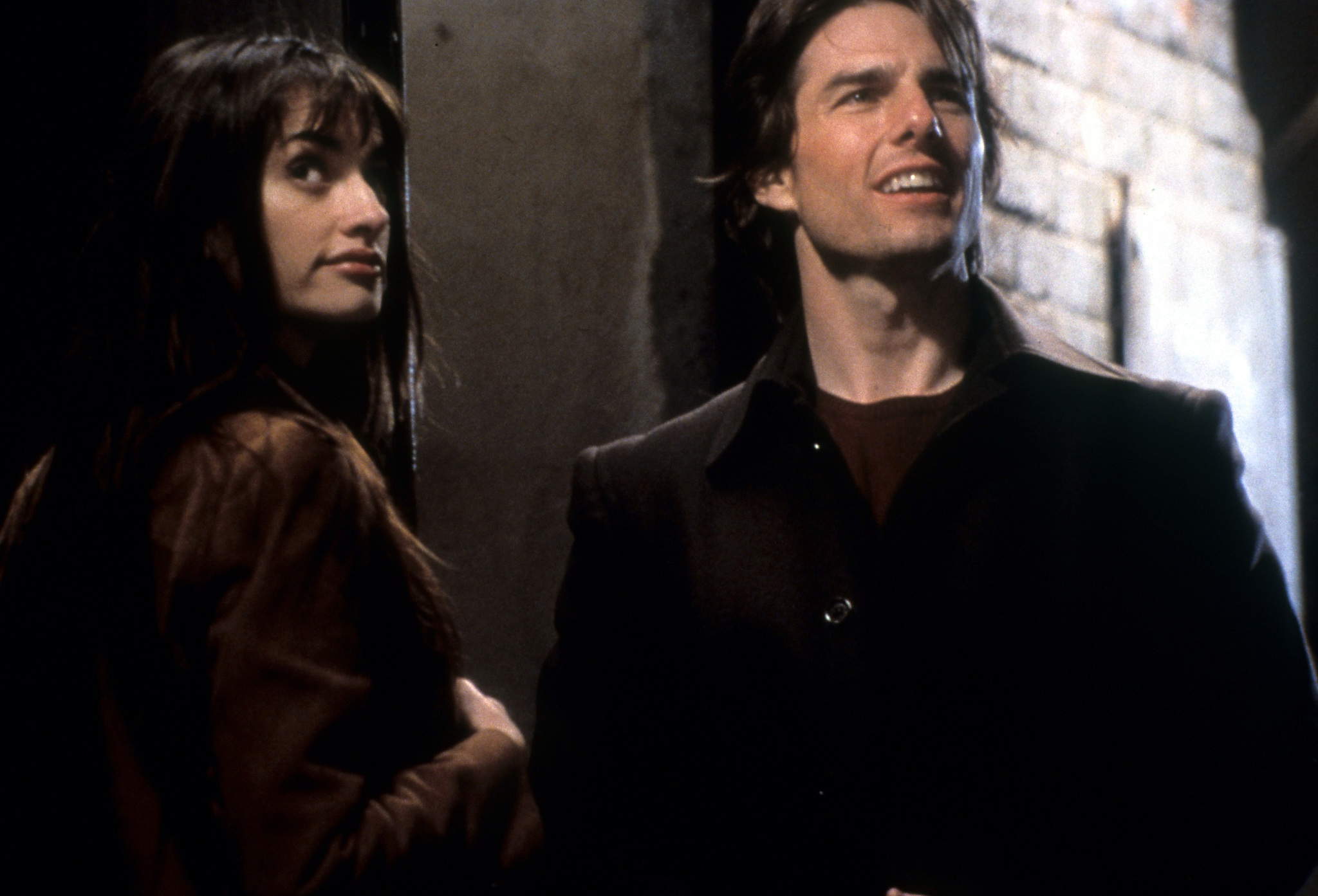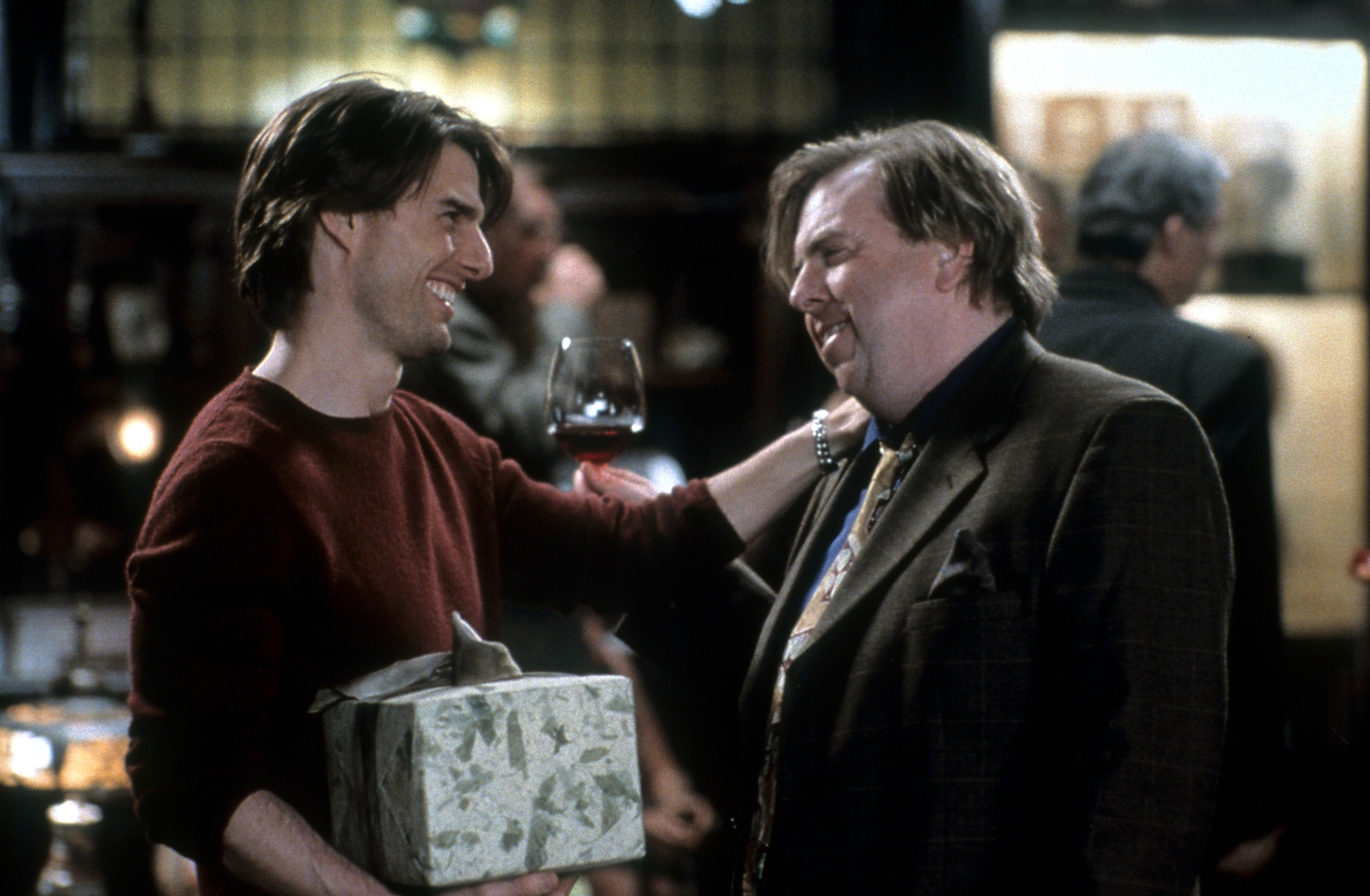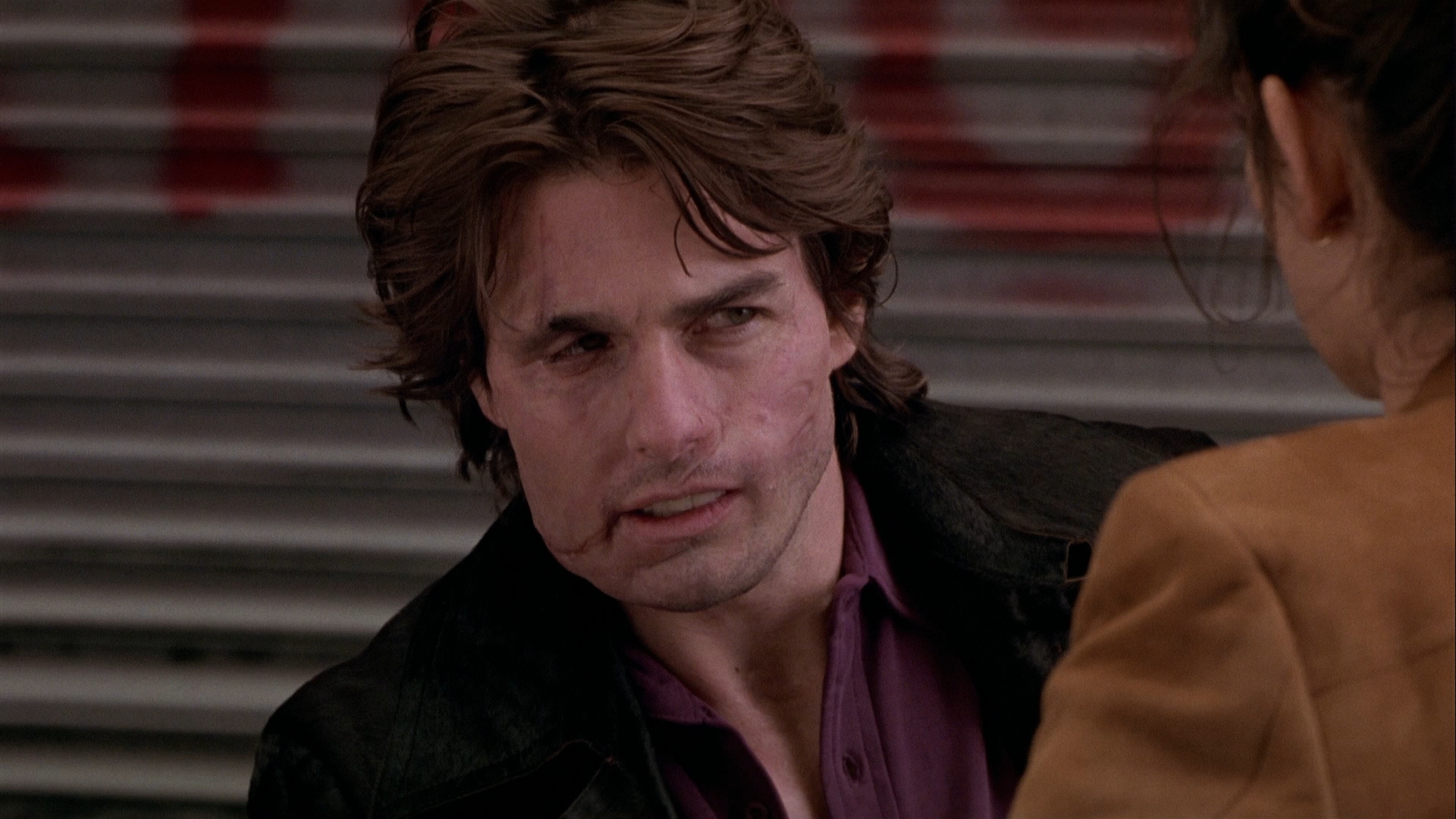Vanilla Sky (2001)

Review of Vanilla Sky (2001)
Vanilla Sky (2001), directed by Cameron Crowe, is a psychological science-fiction drama that explores the boundaries between reality and illusion, love and obsession, and life and death. With a star-studded cast featuring Tom Cruise, Penélope Cruz, and Cameron Diaz, Vanilla Sky is a film that leaves an indelible mark on viewers through its complex narrative, surreal visuals, and haunting themes. Loosely based on the 1997 Spanish film Abre los ojos (Open Your Eyes), the film blends elements of psychological thriller, romance, and existential exploration, offering a provocative experience that lingers long after the credits roll.
From its opening moments, Vanilla Sky invites the audience into a disorienting world that feels simultaneously familiar and foreign. As the story unravels, the audience is kept on edge, constantly questioning what is real and what is imagined. Through its innovative storytelling and disorienting structure, Vanilla Sky is a movie that challenges its audience to reflect on the nature of perception, memory, and identity. Though its narrative twists and layered themes can be perplexing at times, the film rewards viewers with a deeply introspective and emotional journey.
Plot: A Journey Through Memory and Reality
The film follows David Aames (Tom Cruise), a successful and charismatic publishing magnate who seemingly has it all: wealth, fame, and a beautiful life in New York City. His life takes a dramatic turn after a car accident that leaves him severely disfigured. This tragic event sets off a chain of psychological and emotional upheavals, leading him to question the very nature of his existence.
David’s life begins to spiral out of control after his accident, both physically and mentally. His once-perfect life is shattered, and he is haunted by the trauma of his injuries, the loss of his former lover, and the question of whether his perceptions of the world around him are real. As he grapples with these profound changes, he is offered a form of “escape” by a company called Life Extension (LE). Life Extension promises to provide people with the chance to “live” their ideal lives again through a process of cryogenic sleep and the construction of perfect virtual realities. For David, this offer is an opportunity to reclaim his lost happiness, but it comes with deep existential consequences.
The film’s structure is designed to keep the audience questioning what is real and what is part of the illusion. David’s world begins to blur, with events that seem too perfect to be true, or too bizarre to be understood. Through a series of intense, surreal dream-like sequences, the film plunges into the depths of David’s mind, revealing his regrets, desires, and fears. His obsession with his lost love, Sofia Serrano (Penélope Cruz), and his entanglement with his ex-girlfriend, Julie Gianni (Cameron Diaz), make him confront the consequences of his actions and the weight of his choices.
As the narrative unfolds, David must navigate this complex emotional and psychological landscape, questioning whether he can escape the “perfect” life that LE has created for him and return to a more authentic, human existence. The film’s central mystery — whether David is living in a dream, or whether his life has become a meticulously crafted illusion — forms the backbone of the narrative and leads to a stunning and thought-provoking conclusion.
Themes: Reality, Illusion, and Redemption
Vanilla Sky is a film that revolves around the concepts of reality, perception, and illusion. At its core, it explores the nature of subjective experience and the tension between what we want to believe and what is actually true. The central question that the film raises is whether David’s reality is a product of his mind, shaped by his desires, regrets, and traumas, or whether the world around him is simply an illusion constructed to shield him from the unbearable pain of his physical and emotional scars.
The theme of reality vs. illusion is explored through the Life Extension program. David is offered the chance to live in a world of his own making, a world where he can relive the “perfect” moments of his life, avoid painful memories, and create a reality that fits his desires. However, this virtual reality comes at a cost: it detaches him from the authenticity of his own existence. The question of whether a “perfect” life — one free from pain and suffering — is worth living if it means living in a false reality is one of the central ethical dilemmas of the film.
Another key theme of Vanilla Sky is redemption and the quest for meaning in life. After the accident, David is faced with the physical and emotional consequences of his past actions. He must confront the deep flaws in his character, especially his relationships with Sofia and Julie, in order to find a sense of peace and self-acceptance. His journey throughout the film is one of atonement, as he struggles to make amends for the mistakes he has made and the people he has hurt. The film’s ultimate message — that redemption is possible through self-awareness and the acceptance of the imperfect nature of life — is both powerful and moving.
The film also touches on the concept of memory and how it shapes our identity. David’s memories are clouded and fragmented by the trauma he experiences, and the virtual reality constructed by Life Extension gives him the opportunity to “rewrite” his memories. The film asks whether it is more important to live in the present and embrace the imperfections of life, or to retreat into a perfect, controlled illusion that shields us from pain and loss. This exploration of memory and self-identity adds a layer of complexity to the narrative, making Vanilla Sky more than just a psychological thriller; it is also a meditation on the human condition.
Visual Style and Direction: Surreal and Thought-Provoking
Cameron Crowe’s direction in Vanilla Sky is one of the film’s most distinctive features. Known for his emotionally resonant films like Almost Famous (2000) and Say Anything (1989), Crowe brings his signature style to this high-concept psychological drama, infusing the film with an emotional depth that resonates beyond its more cerebral elements. He crafts a visually stunning film, using surreal imagery and dreamlike sequences to blur the lines between reality and illusion. The film’s cinematography, by John Toll, makes use of wide shots, close-ups, and carefully composed visuals to create a sense of disorientation and unease. The use of color and lighting further enhances the dreamlike atmosphere, with the film shifting between cold, clinical settings and vibrant, surreal moments that reflect David’s mental state.
The film’s use of visuals to convey David’s emotional journey is particularly striking. The fractured, distorted images that appear throughout the film — including mirrors, reflections, and distorted landscapes — symbolize David’s fractured sense of self and the confusion he feels about his own reality. These visual motifs underscore the film’s central themes of self-perception and the search for identity, highlighting how memory and trauma can distort our understanding of the world.
One of the most iconic visual elements of Vanilla Sky is the use of the title sequence itself. The image of the New York City skyline, bathed in a golden, dreamlike hue, sets the tone for the film’s exploration of the blurry line between reality and illusion. The sky, which shifts in color throughout the film, becomes a visual representation of David’s fluctuating mental state and his journey toward self-realization.

Performances: Tom Cruise, Penélope Cruz, and Cameron Diaz
The performances in Vanilla Sky are another key element of its success. Tom Cruise, known for his high-energy roles in blockbuster films, delivers a nuanced and emotionally complex performance as David Aames. His portrayal of a man struggling with grief, guilt, and a fractured sense of self is deeply affecting. Cruise brings both vulnerability and intensity to the role, capturing David’s inner turmoil as he grapples with the consequences of his past actions. His performance is a departure from the more traditional “action hero” roles he is often known for, showcasing his range as an actor and allowing him to explore more nuanced emotional territory.
Penélope Cruz, as Sofia Serrano, is equally impressive. Sofia is the object of David’s obsession, and Cruz’s portrayal of her as a compassionate, loving, and enigmatic figure provides a perfect foil to the darker, more destructive elements of David’s character. Cruz brings depth and warmth to her role, making Sofia more than just a love interest. Her relationship with David is one of the most emotional aspects of the film, and Cruz plays it with subtlety and grace.
Cameron Diaz, in a departure from her usual roles, plays Julie Gianni, David’s ex-girlfriend, with a surprising intensity. Julie is emotionally unstable, obsessive, and often cruel, and Diaz’s portrayal adds an edge to the character that makes her a compelling and unpredictable presence in the film. Her dynamic with Cruise’s David is one of tension and conflict, and Diaz captures the character’s jealousy and desperation with a fierce energy.
Music and Score: The Soundtrack as Emotional Guide
One of the most notable aspects of Vanilla Sky is its evocative and memorable soundtrack, which complements the film’s emotional and thematic depth. Featuring a mix of contemporary songs and original music, the soundtrack plays a pivotal role in establishing the tone of the film. Songs like “Where Do I Begin” by The Chemical Brothers and “Mr. Blue Sky” by Electric Light Orchestra serve as both an emotional guide and a reflection of David’s mental and emotional state. The music underscores the surreal atmosphere of the film and amplifies its themes of love, loss, and self-discovery.
The score, composed by Nancy Wilson, further heightens the emotional impact of the film, especially during the more introspective moments. The music underscores the character’s internal struggles, heightening the tension in key scenes and offering a sense of hope and resolution as the story draws to a close.

Conclusion: A Deeply Thought-Provoking Journey
Vanilla Sky is a film that challenges the audience to think critically about the nature of reality, love, and identity. Through its intricate plot, surreal visuals, and emotional performances, the film explores profound philosophical questions about human existence, memory, and the choices that define us. It’s a film that requires multiple viewings to fully appreciate its complexity, but its emotional and intellectual depth makes it a rewarding experience for those willing to delve into its layers. Tom Cruise, Penélope Cruz, and Cameron Diaz deliver standout performances, and the haunting soundtrack elevates the film to a higher emotional plane.
In the end, Vanilla Sky is a daring and ambitious film that explores the fragility of the human experience and the price of pursuing perfection. It’s a journey through the mind and soul of a man grappling with the consequences of his own desires, and it leaves a lasting impression long after the final scene.










